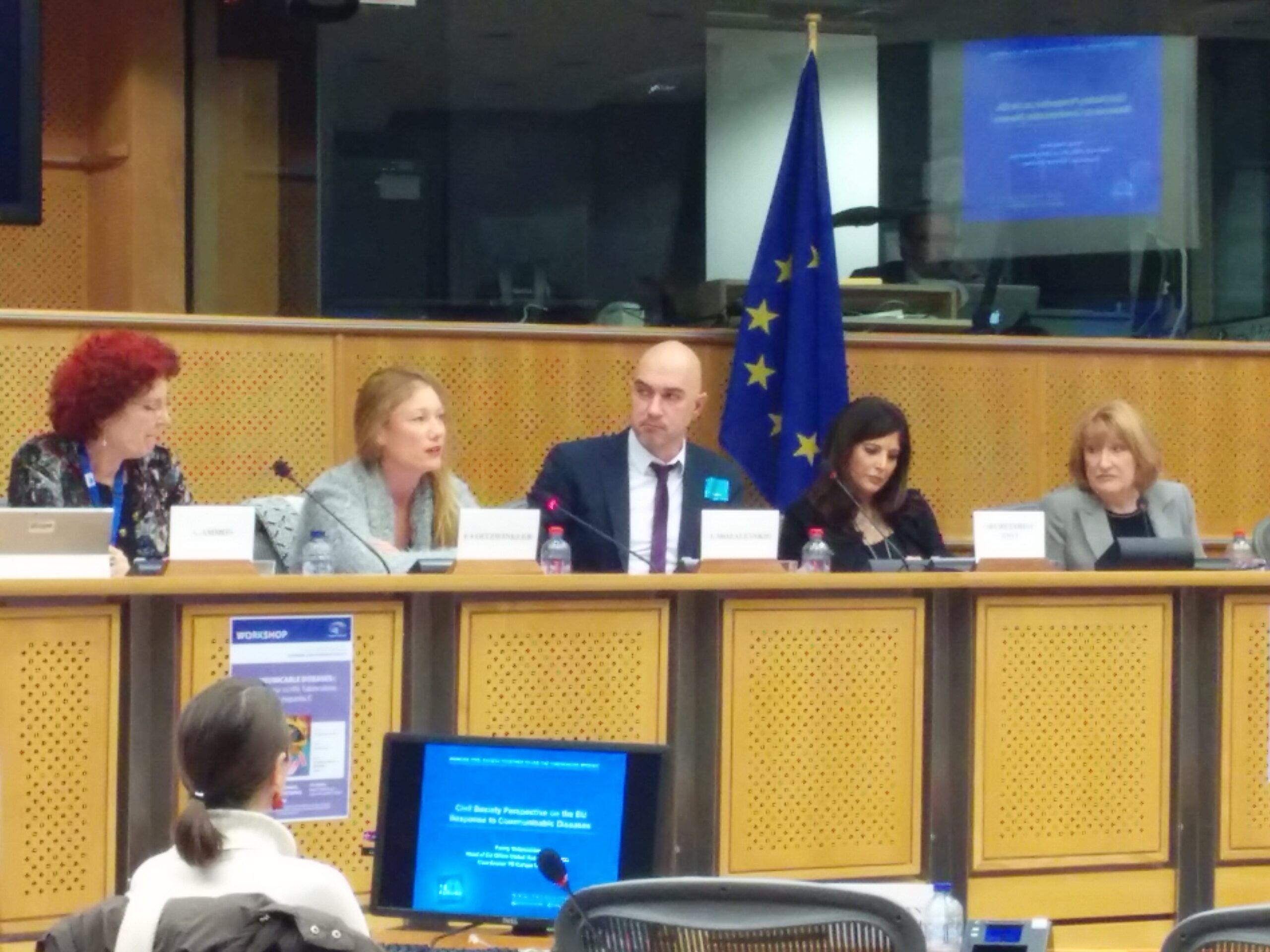On 17th of February 2016, the Health Working Group of the European Parliament Committee on Environment, Public Health and Food Security (ENVI) organised a workshop on EU response to communicable diseases.
 Co-chaired by MEP Glenis Willmot (UK, S&D) and MEP Alojz Peterle (Slovenia, EPP), the panel included representatives from the European Commission, the European Centre for Disease Prevention and Control (ECDC), Global Health Advocates (GHA) and the World Health Organisation (WHO). Unfortunately the Council of the European Union was not present at the discussion.
Co-chaired by MEP Glenis Willmot (UK, S&D) and MEP Alojz Peterle (Slovenia, EPP), the panel included representatives from the European Commission, the European Centre for Disease Prevention and Control (ECDC), Global Health Advocates (GHA) and the World Health Organisation (WHO). Unfortunately the Council of the European Union was not present at the discussion.
Overall, there was a consensus among the panelists that the growing epidemics of HIV/AIDS, MDR-TB and Hepatitis C across the European region is alarming. The response to the three diseases has slipped down the political agenda of the European Commission: there are still major gaps in EU strategies, action plans and guidelines to address the epidemics. Martin Seychell, Deputy Director of DG Health and Consumers, European Commission, underlined the need for a new integrated approach in the EU policy response to HIV, TB and Hepatitis C, as well as the importance of engaging with the affected communities while fighting these epidemics.
The current EU HIV Action Plan is an extension of the 2009 European Commission Communication and will expire in 2016. The EU TB Framework Action Plan, on the other hand, dates back to 2008, is essentially scientific and urgently needs to be updated. GHA emphasized that the EU needs to adopt a comprehensive policy framework addressing HIV/AIDS, TB and Hepatitis C across Europe.
Donor withdrawal from Eastern Europe and Central Asia (EECA) was also a key topic of concern. International resources are unlikely to be matched by domestic ones immediately after donor withdrawal, leaving potentially large gaps in financing basic HIV and TB services. GHA stressed the urgent need for donors, EU institutions and affected countries to develop sustainability roadmaps to ensure an effective and sustainable transition to domestic funding in the EECA region, where TB and HIV epidemics are still very problematic.
The European Commission needs to play a political convener role in graduating countries where it is withdrawing support. It needs to agree on a cross-DG strategy on how to prevent epidemics to affect European citizens, especially since these have a cross-border aspect. Political strategies need to be put in place with governments of the region to make sure that progresses made so far do not recede. If we fail to maintain efforts and invest now, we risk the epidemics flare up anew with severe human and financial consequences. Political commitments from all governments and EU leadership are vital to curb those epidemics.
EU civil society organisations are going to work closely with the European Commission, technical organisations and all stakeholders to ensure smooth transition in the region by identifying the current gaps and devising strategies to address those. This should culminate in the organisation in Brussels of a Joint Partnership Forum on transition and sustainability in EECA at the end of 2016.


